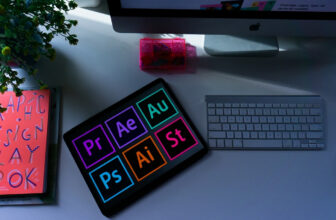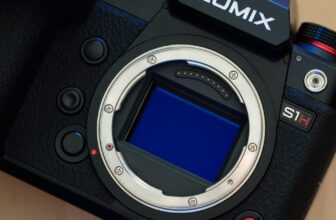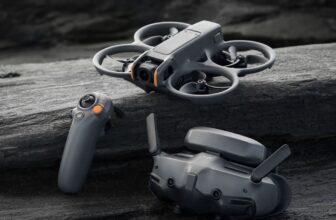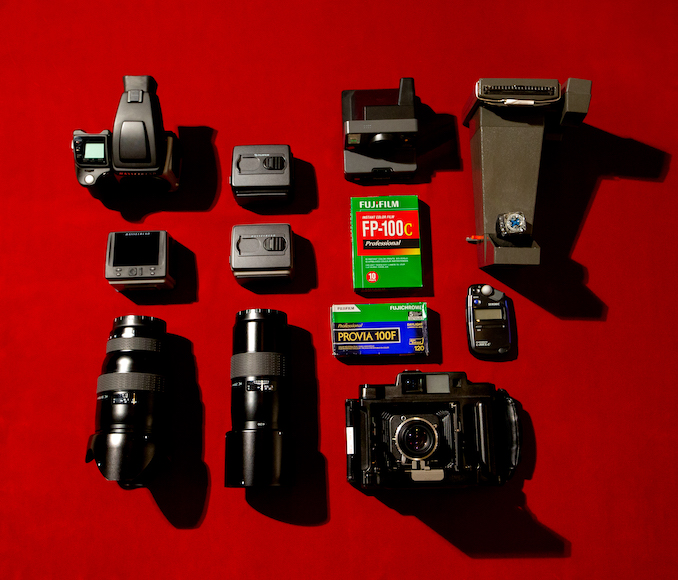
[adinserter block=”1″]
I am a Los Angeles-based photographer specializing in various genres, including high fashion, portraiture, fine art, and lifestyle photography.
Since relocating to Los Angeles in 2014, I have worked as a freelance photographer. I initially used full-frame DSLRs and later transitioned to mirrorless cameras.
However, during the recent challenging times brought about by the pandemic, I delved deeper into the world of 120 film.
Nowadays, I predominantly shoot on film, with my workhorse being the Hasselblad H5D.
This remarkable camera offers digital and film photography flexibility through its interchangeable backs. This allows me to seamlessly switch between digital and film formats based on client preferences or personal projects.
The medium format capabilities of the Hasselblad ensure exceptional detail in the negatives, making them perfect for showcasing in art galleries.
As for lenses, I prefer to keep it minimal. My go-to lens is the Hasselblad 50-110mm f/3 HC, allowing quick perspective changes during on-location shoots.
Additionally, I have a Hasselblad 210mm f/4 HC lens, which adds a unique touch by creating a tighter background behind the subject.
When shooting with 120 film, I often use slide film to achieve cool tones and striking contrast. I also enjoy experimenting with black-and-white film from Cinestill or Kodak.
In addition to my love for film, I utilize various Polaroid cameras that require fp100c peel-apart film. Although this film has been discontinued recently, it possesses an irreplaceable aesthetic that I find captivating.
My go-to camera for Polaroid portraits is the Polaroid Bigshot, which requires disposable flash cubes. I rely on the Fujifilm FP-1 Land Camera for wider-perspective shots, which excels at capturing outdoor images flooded with natural sunlight.
For Polaroids that do not require fp100c film, I enjoy using the Polaroid OneStep2 and, more recently, the Instax Wide.
To ensure precise exposure when shooting film, I rely on the efficiency of my Sekonic light meter.
Equipment List:
Hasselblad H5D-50C
Hasselblad HM 16-32mm 12-/220 Medium Format Film back x2
Hasselblad HC 210mm f/4
Polaroid BigShot
Polaroid OneStep2
Sekonic L-308X-U Light Meter
2017
I’m a photographer based in Los Angeles, California. My work ranges from fashion, portraiture, lifestyle, and fine art.
I shoot for publications in the fashion industry and on-set stills for motion pictures, which means meeting deadlines while on the go. To keep my workflow organized and consistent, I’ve kept my tools and equipment to a comfortable minimum.
I bought my first DSLR in 2011, a Canon EOS T2i. I began posting my work to social media just before I created my own website to showcase my portfolio book as it progressed. Lots of my friends would see my pictures, asking me to help them build their modeling portfolios, and it took off from there.
I went through a couple of 1.6-crop Canon bodies (the Canon EOS T2i and Canon EOS 7D
) before I upgraded to a Canon EOS 5D Mark II
. I currently use the Canon EOS 5D Mark III
.
Photography is about capturing a moment in time as you see it, which means utilizing natural lighting. I own a Canon flash that I’ll rarely pull out of the bag, but most of my work is without it. I also own a prism made by Neewer, which I sometimes use to create a rainbow light on a model.
I love finding new ways to manipulate and bend light to create pictures that are visually stimulating in a natural sense.
I usually shoot with a Canon EF 24-70mm f/2.8L II for the variety in framing composition. If I shoot in low light or outside after dark, I’ll use a Canon EF 50mm f/1.2L lens for the wider aperture needed in those environments.
I also enjoy shooting film. I own a Leica Minilux Zoom 35mm camera, a real workhorse. I was recently given a new Leica Sofort instant camera, which is also fun to shoot with.
Equipment List:
Canon EOS 5D Mark III
Canon EF 24-70mm f/2.8L
Canon EF 50mm f/1.2 L
Canon Speedlite 430EX
Neewer Optical Glass Prism
Leica Sofort Instant Camera
Joby Gorillapod SLR Zoom Tripod
2014
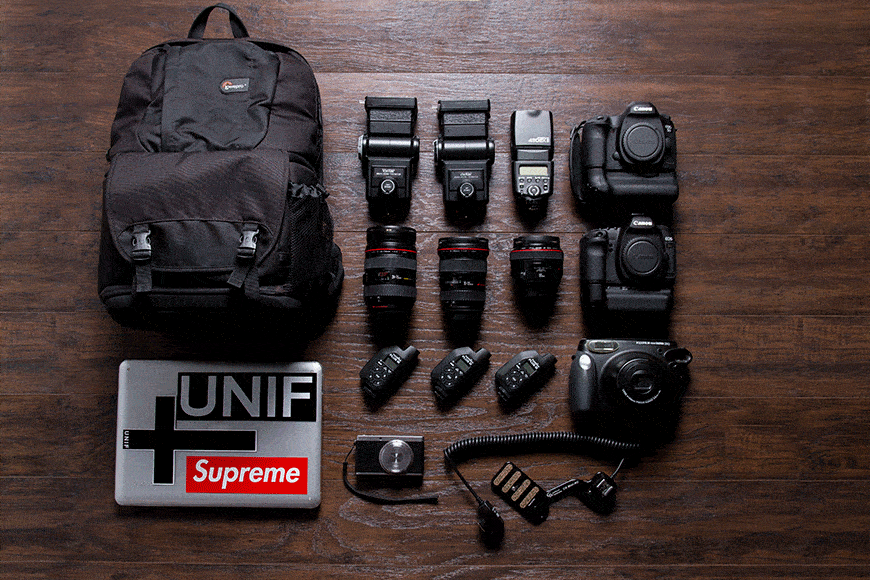
In my relatively short career, I’ve been fortunate to work with some of today’s best names in the modeling industry.
Whether it be magazine publications or photography exhibitions, I continue to find ways to push my craft full force in both the online community and in the field without taking any breaks.
I am fascinated with conveying imagery to viewers that says a lot using as little as possible.
Though I admire high production, I tend to gravitate towards a more candid approach when shooting. Within the first year of my career, I taught myself that the best way to do this was with less equipment. As they say, less is more!
I bought my first DSLR in 2011, a Canon EOS T2i, and I quickly learned to utilize sites like Tumblr and Instagram, which were new at the time, as well as a new website of my own for posting updates of my work as it progressed.
Many of my friends saw my pictures and asked me to help them build their modeling portfolios, and it took off from there.
I work with mostly female models these days, and a lot of the time, they’re moving around, switching poses. So, it’s important to have tools that allow me to capture spur-of-the-moment shots that maintain clarity and quality.
I went through a couple of 1.6-crop Canon bodies (the Canon Rebel T2i and Canon EOS 7D) before I upgraded to a Canon EOS 5D Mark II, and I’ve just recently upgraded to the newer Canon EOS 5D Mark III.
Ever since I went full-frame, I realized how serious I was getting with photography and decided to burn a huge hole in my bank account by buying all L glass.
I’m a firm believer in the idea that you can take a killer picture with the shittiest camera. But if you’ve got the money, there’s no reason not to get what you want to help things go smoother.
If I’m not using natural lighting, I mostly use a speedlight on the camera body or a bracket that holds the flash off to the side to reduce shadows on hard-lit shots.
I also have soft boxes, umbrellas, and some Pocket Wizards in my studio, which I sometimes use if a client or company requests softer lighting.
Though I own a Canon Flash, which I use sometimes, I enjoy shooting most of my work with the more novelty-type Vivitar.
I love the “toy” feeling of it and the fact that it’s all manual, which forces me to set the exact exposure I want. These flashes are powerful workhorses and have never given me issues, which is bananas, considering how cheap they are.
Finally, I use a few smaller cameras for quick shots.
I regularly use a Polaroid-style Fujifilm Instax Wide 210 for instant film shots.
I also recently got a Fujifilm XF1 point-and-shoot, which is amazing for candid shots. Most of the time, I’m on the go or shooting in different major cities, so it’s important for me to be mobile and fit everything into one bag when I can.
In my bag:
Canon EOS 5D Mark III
Canon EOS 5D Mark III
Canon EF 24-70mm f/2.8L
Canon EF 16-35mm f/2.8L
Canon EF 50mm f/1.2L
Canon Speedlite 430EX
Vivitar 285HV Flash (2)
PocketWizard 801-130 Plus III Transceiver (3)
Apple MacBook Pro 13-inch
Fujifilm INSTAX 210
Lowepro Fastpack 250 Camera Backpack
[adinserter block=”1″]
Credit : Source Post



